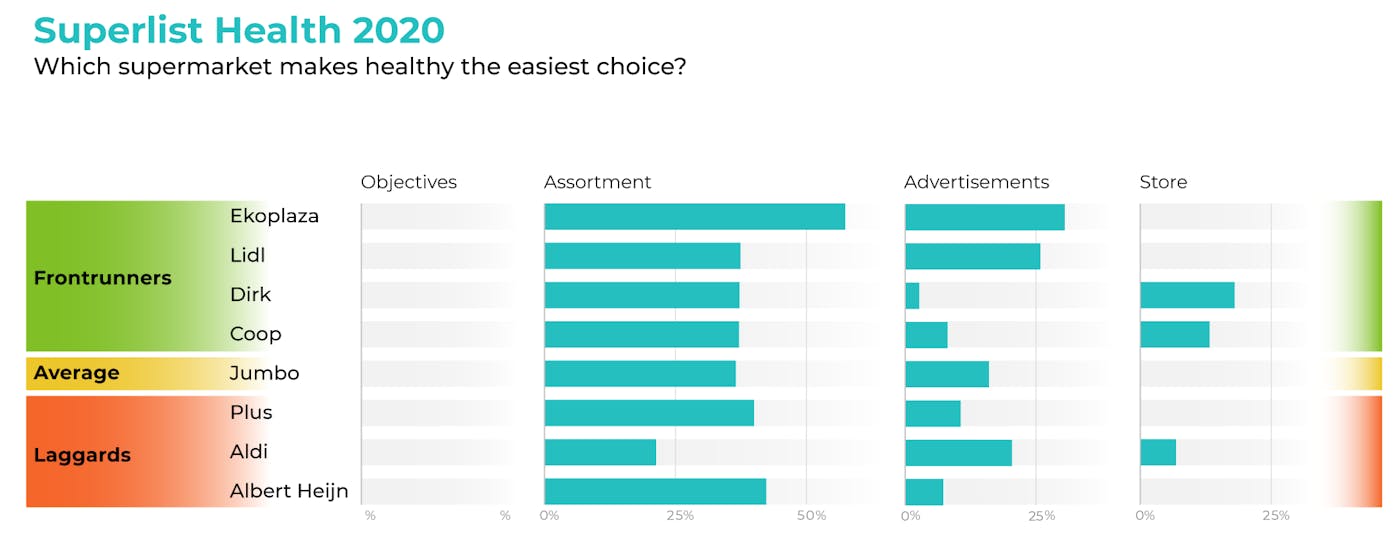Superlist NL Health 2020
Supporting people making healthy eating choices
A supermarket cannot make its customers healthier. However, supermarkets can make healthy food the easiest choice. In recent years, supermarkets have taken more and more measures to help achieve this. With Superlist NL Health, we show which supermarkets in The Netherlands are leading the way and which are still lagging behind. The supermarkets that we've analyzed are Albert Heijn, Jumbo, Lidl, Aldi, Plus, Dirk, Coop en Ekoplaza.
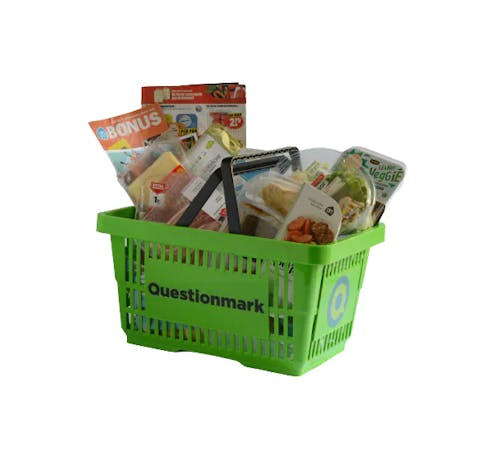
How can supermarkets help?
This first Superlist NL Health examines how supermarkets help consumers to eat a healthy diet through the composition of their products on offer, their specials, shop design and objectives.
Despite the undisputed importance of healthy eating, the share of the population in the Netherlands that is overweight and suffering from the associated diseases and disorders has been growing for the past 30 years. It is thus crucial to support people better to eat a healthy diet.
It is important to understand in this context that education is not sufficient. Knowledge does not always lead to healthy behaviour, and a person’s food choice is not always rational. Our surroundings greatly influence what we eat. One significant component of our surroundings is the supermarket where most of our food comes from. This leads us to the obvious question: how can supermarkets help us to make healthy choices?
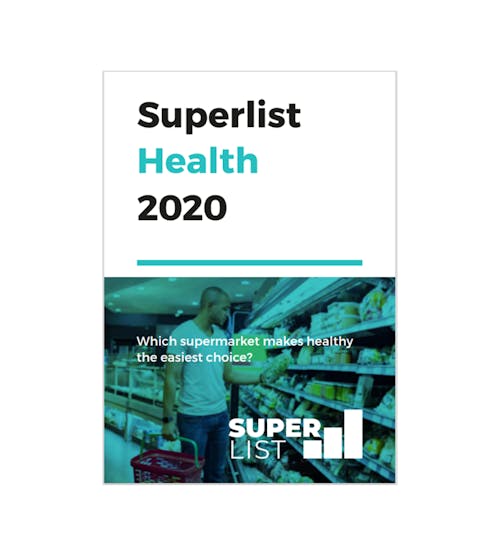
Supermarkets should do more
Without exception, every supermarket is expressing the intention to make it easier to choose the healthier option. At Lidl, Dirk, Coop and Ekoplaza, this aim has been translated into policy and practice the best. But not a single supermarket has set adequate objectives for selling healthy products, and the weekly folders advertising specials are filled predominantly with unhealthy products. Nevertheless, almost every supermarket in this survey is a good example that can inspire other supermarkets.
Ranking
Using these findings, a ranking of supermarkets was prepared based on a weighting set in advance. The ranking shows which supermarkets generally belong to the frontrunners, laggards or the average group. The boundaries between the groups are drawn where the differences between two supermarkets are the largest. But it was determined in advance that the frontrunner and laggard groups would always contain more than one supermarket.
The actual distance between the three 'laggards' in this ranking is minimal. Although Albert Heijn, Aldi and Plus performed differently in various sub-categories, their place in the final ranking is practically the same.
This ranking must not be considered an absolute judgement. In contrast, it is striking that it is not always the same supermarket that is ahead in all areas. It’s those differences that show that all of the supermarkets stand to profit greatly if they learn from the good examples of their fellow supermarkets.
Partners
For this study, we have collaborated with four civil society organisations representing health interests: the Heart Foundation, the Diabetes Research Foundation, the Kidney Foundation, and the Stomach, Liver and Bowel Foundation.
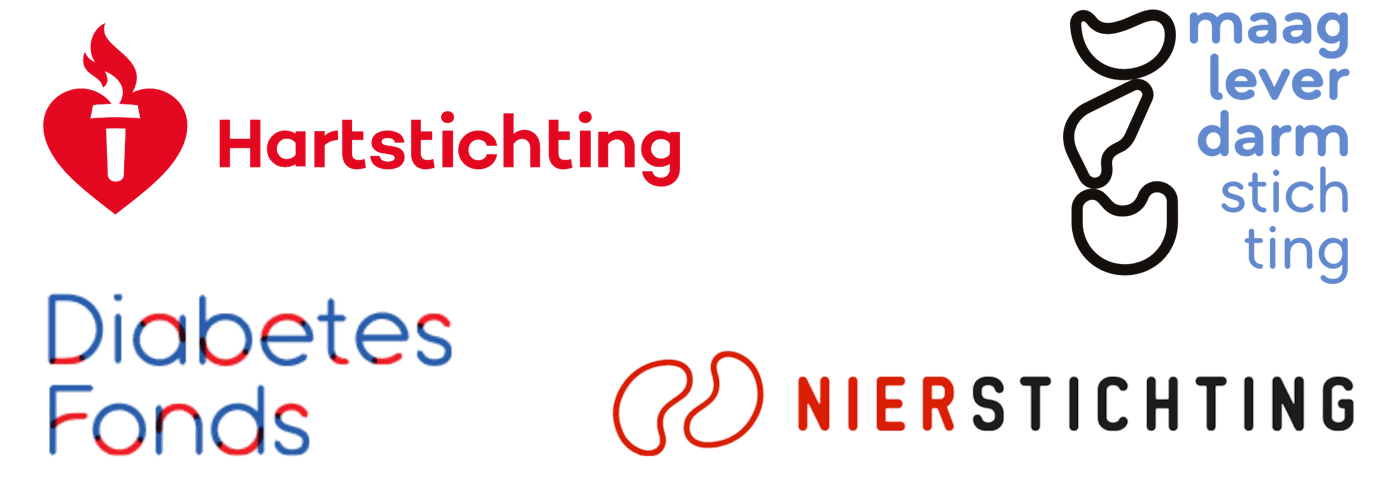
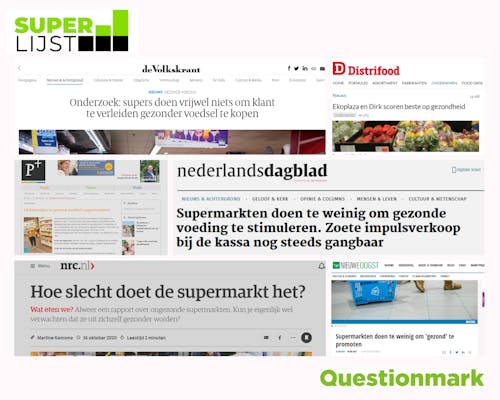
More reading
- You can download the summary of the report here.
- You can find the full report (in Dutch only) here.
- You can read the press release here.
